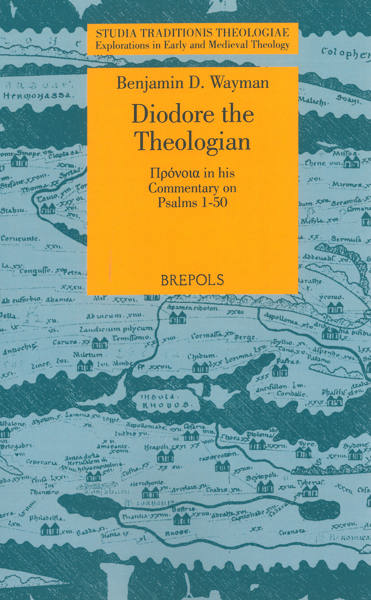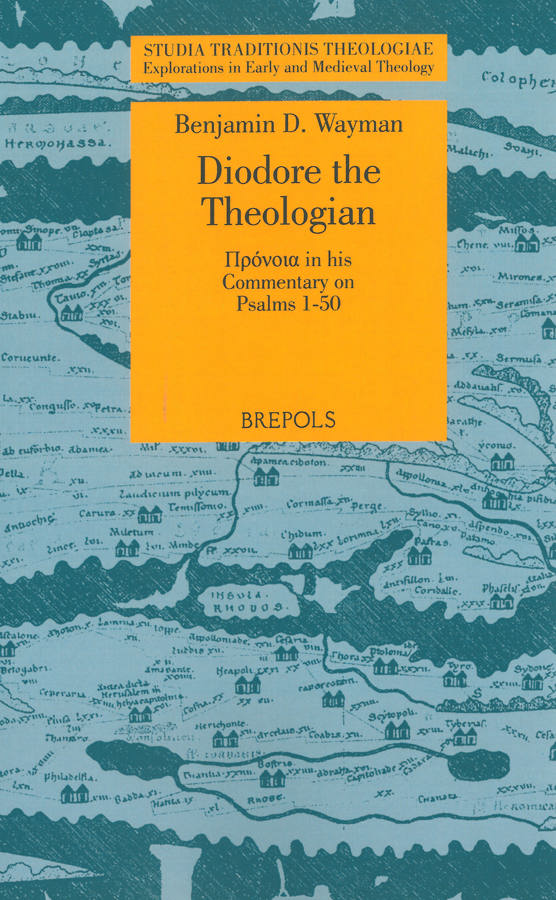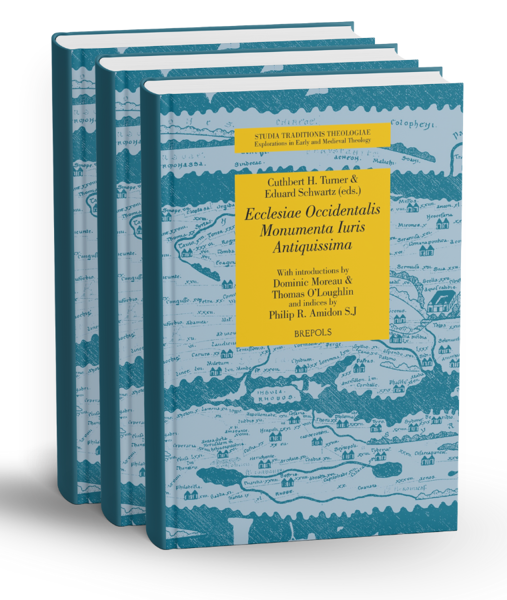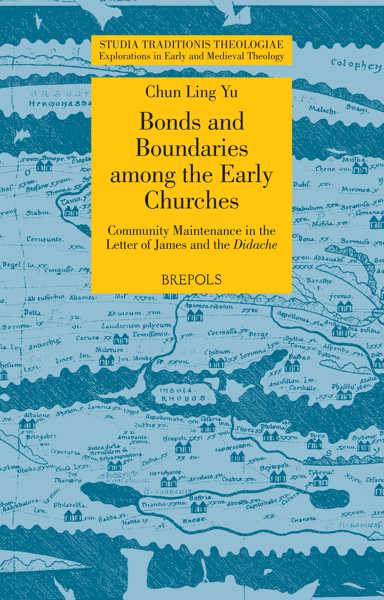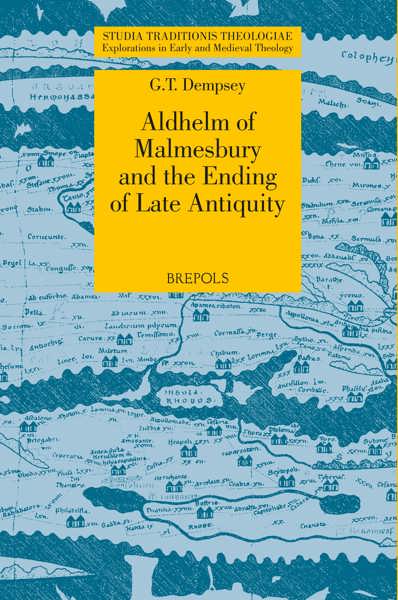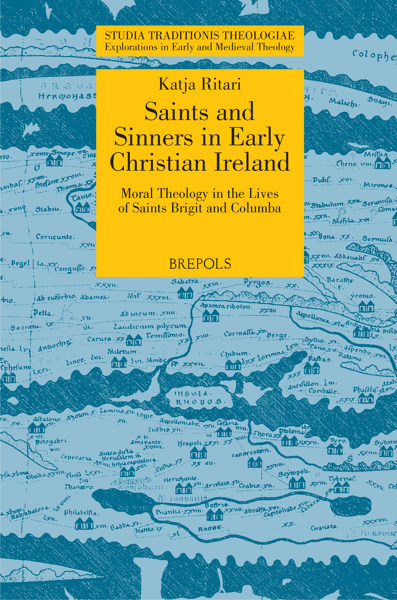
- Pages: 267 p.
- Size:156 x 234 mm
- Language(s):English
- Publication Year:2014
- € 85,00 EXCL. VAT RETAIL PRICE
- ISBN: 978-2-503-55050-3
- Paperback
- Available
A fresh proposal for the role of theology in Diodore's exegesis of Psalms 1-50.
"[T]his work, then, makes a general contribution [to the study of the patristic period], as well as a specific one to the study of Diodore. It marks a new stage in efforts to understand this church father and provides a solid basis for further investigation."
(from the Foreword by Rowan A. Greer, Prof. Emeritus, Yale Divinity School)
"(...) la recherche de l'A. (...) invite à porter un regard neuf sur le commentaire de Diodore. On lui saura gré d'avoir su réunir sous le concept théologique de Providence l'apport des études antérieures consacrées à la méthode herméneutique de l'Antiochien et à sa conception d'un "sens supérieur" de l'histoire – la ϴεωρία –, d'obliger certains critiques à réviser leurs jugements sur la dimension doctrinale du commentaire, et d'inviter la communauté scientifique à en faire une lecture profondément renouvelée." (Jean-Noël Guinot, dans: Revue d'Histoire Ecclésiastique, 1/2015, p. 322-325)
"While Diodore the Theologian will not be the most approachable way into Diodore's thought, it is a valuable contribution to the study of an underappreciated theologian, and should receive wide use among specialists." (David Neal Greenwood, in Vigiliae Christianae 70, 2016, p. 105-106
Benjamin D. Wayman is assistant professor of religion at Greenville College. He holds the Ph.D. in historical theology (early Christianity) from Saint Louis University and the M.Div. from the Divinity School at Duke University.
This study examines the role of theology in the biblical commentary of a fourth-century pastor and teacher. The notion that theology and scripture are inextricably connected in early Christian thinking has become a scholarly commonplace in contemporary patristic scholarship. But the nature of the connection has been less than clear, particularly with respect to the commentary on Psalms 1-50 (ca. 372) composed by Diodore of Tarsus (d. ca. 394).
Despite the fact that Diodore identifies πρόνοια (providence) as the central doctrinal theme of the Psalms in his Prologue to the Commentary, scholars have largely overlooked Diodore’s engagement with πρόνοια in his exegesis of the Psalms. This study argues that a specific account of πρόνοια supplies Diodore’s primary theological framework for interpreting the Psalms by generating the questions he asks of the text and shaping his view of other themes in the Psalms. For Diodore, πρόνοια is more than a theme he identifies in the Psalms. Rather, the nature of God’s πρόνοια is for Diodore the main doctrinal question posed by the Psalter, to which his exegesis of the Psalms provides the answer. The answer, Wayman contends, is a view of πρόνοια which he describes as cooperative, reciprocal, and immanent.
Foreword
Acknowledgments
Abbreviations
INTRODUCTION
Thesis and Steps in the Argument The Text and the Significance of this Study
The Prologue and The Problem
Πρόνοια in the Commentary
On Method
Outline of Chapters
CHAPTER ONE: BEYOND CURRENT APPROACHES
Θεωρία Scholarship
Grammatical-Rhetorical Scholarship
Πρόνοια Scholarship
Πρόνοια in the Ἱστορία and Θεωρία
Conclusion
CHAPTER TWO: ΠΡΟΝΟΙΑ IN PHILOSOPHICAL CULTURE
The Doctrine(s) of Πρόνοια
On God and Creation
Divine Transcendence and Immanence
General or Special Providence
Fate and Free Will
Diodore the Philosopher
Conclusion
CHAPTER THREE: ΠΡΟΝΟΙΑ IN CHRISTIAN CULTURE
Post-Nicaea Camps
Diodore’s New-Nicene Tradition
A Syrian-Palestinian Tradition
Philo of Alexandria
Didymus the Blind
Bardaişan of Edessa
Eusebius of Emesa
Nemesius of Emesa
Diodore the Apologist
Conclusion
CHAPTER FOUR: ΠΡΟΝΟΙΑ AND THE DIVINELY INSPIRED PSALMS
Fourth-Century Pneumatologies
The Holy Spirit and the Use of the Psalms
Providence in Two Kinds
On Providence: David’s Testimony
The Holy Spirit and the Composition of the Psalms
On Providence, Inspiration, and the Obscurity of the Psalms
Origen’s Theologies of Providence and Inspiration
Obscurity and Providence in Diodore’s Psalms Commentary
Conclusion
CHAPTER FIVE: ΠΡΟΝΟΙΑ AND MORALITY
Providence and Morality
Freedom to Accept God’s Invitation and Obstacles to Doing So
Specific Providence and Its Effects: Assistance and Punishment
Conclusion
CHAPTER SIX: ΠΡΟΝΟΙΑ AND PROPHECY
The Πράγματα of the Psalms
Πρόνοια and Τὸ Ἱστορικόν
What is the Difference Between Θεωρία and Ἀλληγορία?
Making Sense of Ἱστορία and Θεωρία in Light of Πρόνοια
The Problem with Ἀλληγορία
Πρόνοια and Diodore’s Dual-Method
Conclusion
CONCLUSION
Diodore’s Achievement
A Word of Caution and the Contribution of this Study
Concluding Remark
Appendix A
Appendix B
Bibliography Indices
